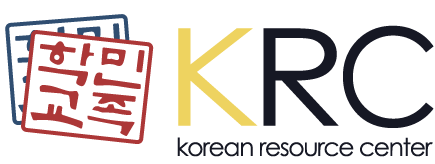Kwangsun Jang, Philadelphia member of the Korean Alliance for Peace and Justice
 We do not participate in the movement for Korea's democracy and reunification merely out of patriotic longing or a burst of nationalism. We are immigrants in the United States, the epicenter of capitalism, seeking to lay our roots here for generations to come. A society built on individualistic values may lead us to into forgetting about our own identity as Korean Americans, dismiss our neighbors and society in general - even our parents and siblings. We may be drawn to worry solely for our own well being and personal success. To do so will weaken our human spirit and prevent us from laying our roots in this land and passing on a prosperous future for our children.
We do not participate in the movement for Korea's democracy and reunification merely out of patriotic longing or a burst of nationalism. We are immigrants in the United States, the epicenter of capitalism, seeking to lay our roots here for generations to come. A society built on individualistic values may lead us to into forgetting about our own identity as Korean Americans, dismiss our neighbors and society in general - even our parents and siblings. We may be drawn to worry solely for our own well being and personal success. To do so will weaken our human spirit and prevent us from laying our roots in this land and passing on a prosperous future for our children.
By confirming our responsibility and fortifying our links of solidarity towards our neighbors, both the U.S. and Korea can overcome these temptations. By doing so, we strengthen our identity, and bring ourselves to walk the right path. This is the spirit we must pass on to future generations, so that we may live in harmony within a diverse, multi-ethnic society. This is the reason we engage in the movement for Korea's democracy and reunification; it is a constant struggle to emerge as the best of ourselves.
The Gwangju People's Uprising was the spark that transformed the movement for Korea's democracy and reunification expanding it from its former focus on an individual's consciousness to a mass-based, organizational movement. The movement in the U.S. was able to grow because of Yoon Han Bong, one of its grassroots leaders who had received political asylum in the U.S.
As a mass movement organization, Young Koreans United and the Korean Alliance for Peace and Justice accomplished the following: First, we established our own identity through continual learning of Korea's history, culture, ideology, and political economy. The International Congress for Peaceful and Self-Determined Reunification which presented a way of re-thinking a divided Korea as a united Korea and opened the road for peaceful dialogue and collaboration outside the frame of the Cold War, was among our greatest achievements.
Second, we captured the energy and attention of young people, while incorporating workers and small business owners, as the leaders of the movement --- moving away from previous elitist forms that relied on ideologues and academics.
Third, we brought the movement into everyday life. Funding was procured by fasting one day a week or recycling cans. Campaigns were broadly deployed through postcards or telegrams, which were easy to execute in daily life. These seemingly small efforts were part of the larger movement. We also used poongmul, a traditional community cultural tradition, in political actions to catch the public's attention.
Fourth, we sought to actively reach out to mainstream society and strengthen solidarity ties with broad political & social sectors. Our experience in carrying out political and cultural outreach activities in D.C. and the founding of community centers in major urban cities demonstrate how a mass movement can connect with non-profit community based organizations.
Fifth, we raised our voices on social and political issues that affect the every day lives of minority communities such as immigrant rights
Sixth, we raised awareness of the fact that a progressive movement involved a measure of self-sacrifice and self reflection.
We have held an egalitarian structure in which no member - be it a leader, an organizer, a regular member or a financial supporter - has sought or gained fame or influence by belonging to our organization. Sincere dedication is the biggest drive in changing our society. I hope that our organizing work to date becomes strengthened, rooting our political power on this land, and allowing future generations to proudly recognize their heritage and engage in American society and the progressive movement. I believe this to be the mission entrusted to us 28 years ago by the Gwangju People's Uprising and the late Yoon Han Bong.
